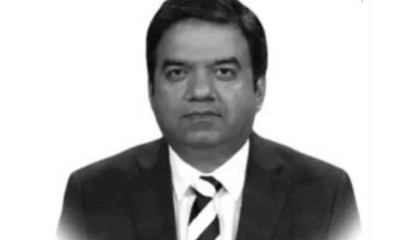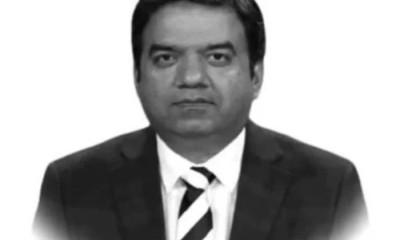Pakistan
Self deception!
Prime Minister Imran Khan revealed in an interview with a Turkish TV that his government was holding talks in Afghanistan with some groups of the Tehreek-e-Taliban Pakistan. There are different groups that make up TTP. Yes, we are talking to some of them.
To a question if the Afghan Taliban are also helping you (Pakistan) in this regard? The prime minister said that since the talks were taking place in Afghanistan, They (the Afghan Taliban) are helping only to that extent. If the TTP groups that are in talks surrender, they will be forgiven and can live like ordinary citizens. When asked, "Do you expect any kind of agreement?" the premier said: "I want to say again that I do not believe in a military solution, as a politician I believe in dialogue". The host asked why Pakistani security forces are being targeted if talks are ongoing. On this, Imran Khan said, "We are negotiating. It was a fresh wave of attacks and we may not reach an agreement in the end, but we are negotiating."
Earlier, President Arif Alai and other key government officials were seen offering amnesty, but the prime minister announced the start of talks on Turkish TV. A group that martyred more than 80,000 Pakistanis, maimed thousands for life, left thousands of children orphaned and helpless, mothers abandoned and brides bereaved. Negotiations with this group and who formulated the policy of amnesty for them and where? Why was the people's representative forum Parliament excluded from this process? Those whom we called martyrs and have been composing songs in their memory for years. Can their blood be forgiven? A prime minister who used to call his predecessors Mughal emperors to ridicule dictatorship, has he now become the emperor himself?
Of course, no government official will have the answers to all these questions and he would not like to face such questions, so the decisions were made in closed-door meetings, the policy was made and the process began. But it is important to remind them that the state has already made similar efforts to bring murderers and terrorists into the national mainstream by declaring them as lost people.
When former Prime Minister Mian Muhammad Nawaz Sharif took over as the Prime Minister, he wanted to carry out this mission in good faith despite the acts of terrorism. He also formed a committee for negotiations which included Irfan Siddiqui, Rahimullah Yousafzai, Rustam Shah Mohmand and others. Now Imran Khan is the Prime Minister of Pakistan and being the chief executive of this country he has to take concrete steps and final decisions to ensure the safety of the lives and property of the people.
It is up to the Prime Minister to decide whether to respond to the enemies of peace with bullets or to bring them into the national mainstream by negotiating with them. It would be better if all the stakeholders were involved in this process. Whether it is America's 20-year war on terror in Afghanistan or the fight against the banned Tehreek-e-Taliban Pakistan (TTP), whether Imran Khan is in opposition or in government, he has always said that war is a problem and not the solution. Some of his critics have been calling him "Taliban Khan" for such things.
The PPP has strongly reacted to the Prime Minister's statement of talks with some TTP groups and demanded that a session of Parliament be convened. Sherry Rehman says: The confirmation of negotiations with the TTP is shocking and disturbing. Who are you to forgive TTP alone? The TTP has announced that it will not apologize, the government should explain the statement of the Prime Minister in Parliament. PML-N Senator Irfan Siddiqui has said that it is not appropriate to keep the government talks with the TTP secret. This is a sensitive national issue. In the Nawaz era, the talks were approved by the parliament. Negotiations with the TTP and the offer of a general amnesty without taking the nation and parliament into confidence have raised many questions.
In my opinion, the demand of the opposition is legitimate. They should have been taken into confidence on such an important and sensitive issue. If they were not taken into confidence, then it should be explained why the talks started at once. When and where was the decision made to pardon those who surrendered and allow them to live like ordinary citizens?
Federal Minister for Information Fawad Chaudhry gave some explanation on this. In a video statement, he said the state of Pakistan has gone through a river of fire and blood, we have sacrificed thousands of people, now we need to move forward. The policies of the state are formed in a specific background. Many people who have not been able to fulfill their pledge of allegiance to Pakistan want to return to fulfill this pledge. There are various groups in the banned TTP, including those who want to fulfill their pledge of allegiance to Pakistan. Those who to move forward by abiding by the constitution, we believe that such people should be given a chance by the state to return to the mainstream of life.
Nawaz Sharif also considered the people involved in the banned Tehreek-e-Taliban in his time as angry and misguided. That is why he wanted to find a way to peace through negotiations but then the tragedy of APS happened which changed everything. At that time, the state had to make tough decisions. Now that Fawad Chaudhry is referring to the new state policy in a new context, it is hoped that key stakeholders will be taken into confidence on this new policy, otherwise decisions taken in an atmosphere of mistrust may be reversed in the future. The banned Tehreek-e-Taliban and the people influenced by its ideology are a reality of our society which is very bitter.
It is important to acknowledge that extremism has become part of our society. Not all extremists can be bombed, nor can all be crucified. To deal with extremism, fundamental changes must be made in the state structure. Why is there extremism in society? The answer to this question must first be found. To change thinking, you have to change the environment, you have to teach yourself and the children of the enemy, but you have to decide what to teach.
Business
Pakistan now focusing on business, not aid, says Musadik
‘We want to end the culture of hopelessness in the country, create a new society in which there is faith and hope.' said Musadik Malik.
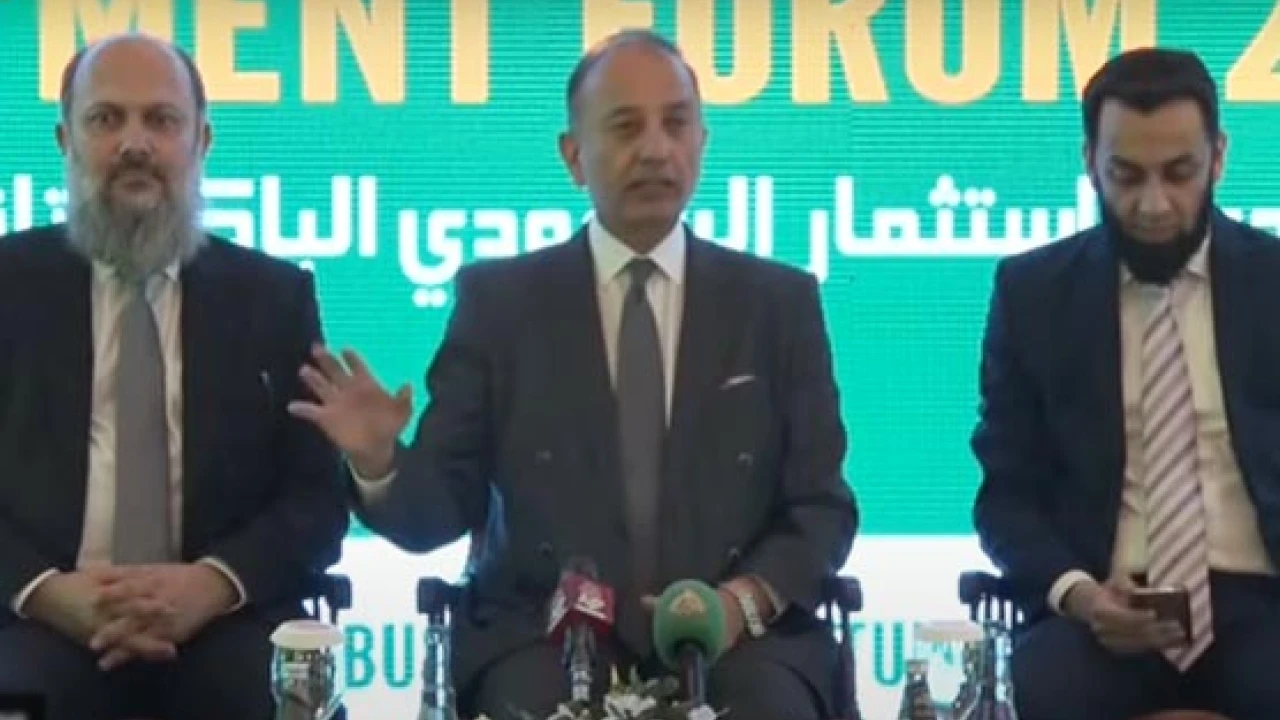
Islamabad: Federal Minister of Petroleum Musadik Malik Monday said that Pakistan is no longer focusing on aid, but on business. Businessmen should invest to advance the vision of Pakistan.
While holding a press conference with Federal Ministers Jam Kamal and Attaullah Tarar in Islamabad, Musadik Malik stated: “Saudi trade delegation is on an important visit to Pakistan, 30 to 35 companies have come to Pakistan for investment. We have brotherly relation with Saudi Arabia”.
He added that we aim to bring a new blueprint to you, there is despair in the country that something bad will happen, and nothing like this will happen. The country will move forward, the hopelessness will end, and look at the new hope. Our children will get new jobs, our youth will do small business with Saudi companies.
The federal minister continued to say: “Pakistan is no longer focusing on aid, but on business. We want to turn red tape into a red carpet for foreign investors. We are on the agenda of strengthening the economy, IT revolution is coming all over the world 125 Pakistani companies are negotiating with Saudi investors”.
‘We want to end the culture of hopelessness in the country, create a new society in which there is faith and hope. First there was a G2G agreement, then the Prime Minister himself visited and stated that we want B2B, not G2G, we want business not aid. Today a bunch of business leaders have come here,’ Malik said further.
The Petroleum minister also stated that if someone has wealth, the other person has the idea. When there is a level playing field, the talent will also move at the same speed. We are not against the elites. The country will no longer be monopolized by a few people.
Musadik Malik added that Saudi companies are doing business here, on the other hand, there is hopelessness. It is not possible that I will bring you down, someone will push me, let's get together to build a society in tolerance and moderation.
Pakistan
Swati's interim bail extended in controversial tweets case
Special Judge Central extended Azam Swati's interim bail till May 15
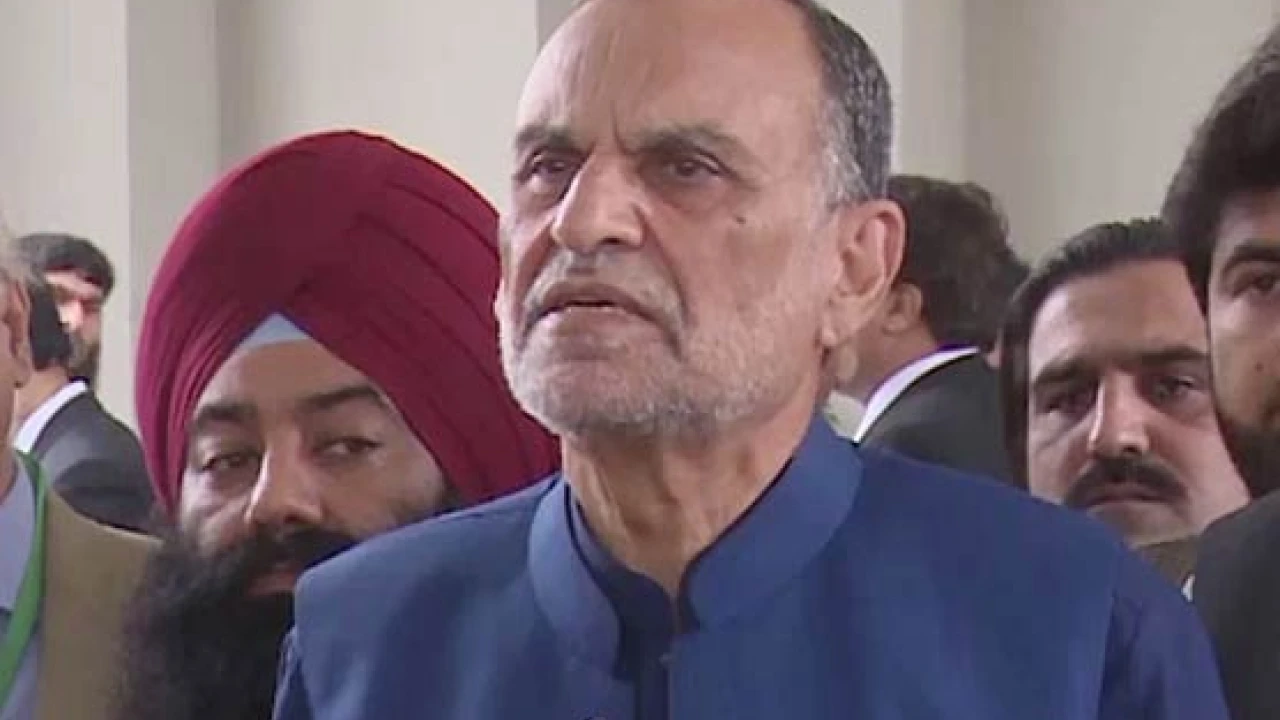
Islamabad: Special Judge Central Islamabad Monday extended Pakistan Tehreek-e-Insaf (PTI) leader Azam Swati's interim bail till May 15 in the case of the controversial tweet.
According to the details, Special Judge Central Humayun Dilawar heard the case against PTI’s Azam Swati.
Judge Humayun Dilawar, talking to lawyer Ali Bukhari, said that do not crowd the court, to which lawyer Ali replied that the lawyers are not from the International Legal Foundation (ILF) but are my juniors.
Special Judge Humayun stated that the lawyers who have to present their arguments should be present and sit down. Lawyer Ali Bukhari said that Azam Swati was granted bail on merit.
Prosecutor Rizwan Abbasi added that Azam Swati misused the judicial leniency. He had become proclaimer. ‘I want to take instructions from my client for which I need time’.
Later, Special Judge Central extended Azam Swati's interim bail till May 15.
Talking to the media outside the judicial complex, Azam Swati said: “I don't know what deal PTI is going to make, I am suffering my cases today. If there is rule of law, the institutions will work”.
He stated that he would be honored with law and the country would move towards improvement. If every institution and individual applies the law to themselves, then stability will be created in the country. Islamabad High Court (IHC) asked to bring Forms-45, 46.
Azam Swati further added that there was a huge rigging in the elections. The Election Commission of Pakistan (ECP) has committed a crime. ‘I curse the elected members of the Assembly under Form-47, those who have the Form-47 should show moral courage and leave the Assembly’.
Entertainment
Seasoned actor Benard Shah dies at 79
The British actor played supporting roles in Titanic and Lord of the Rings
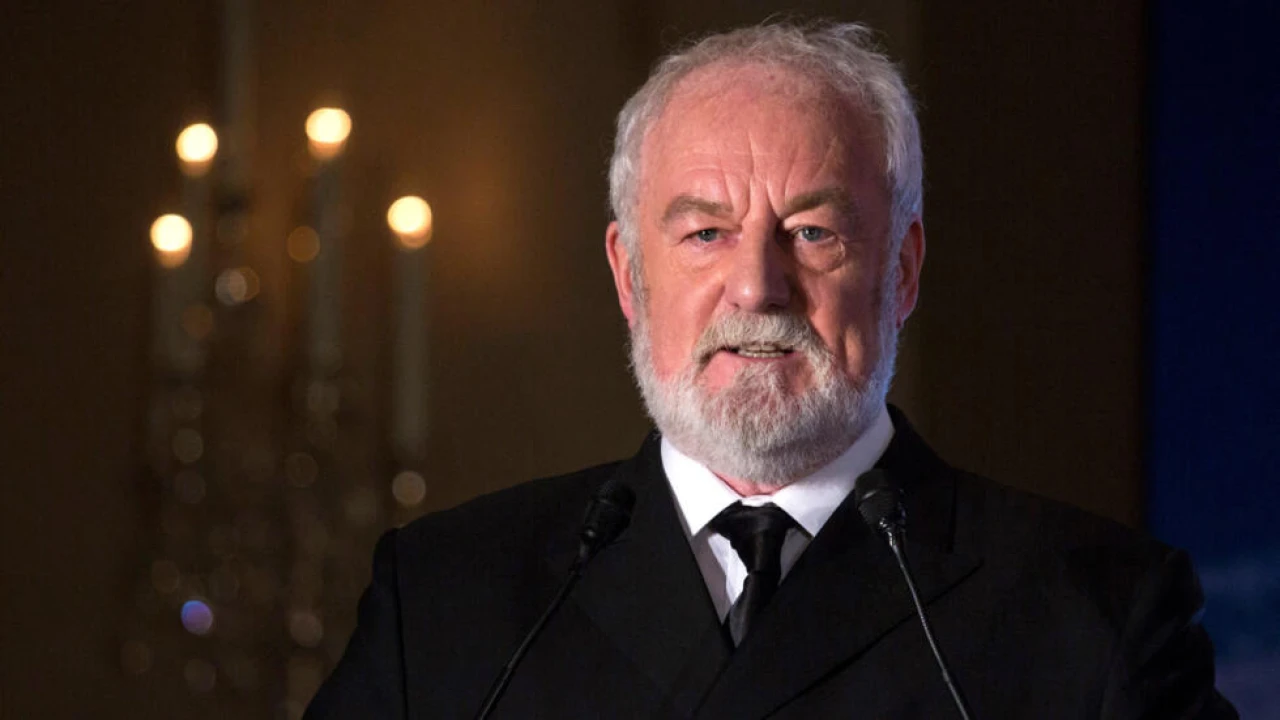
Lahore (Monitoring Desk):
British actor Bernard Hill, best known for his supporting roles in Titanic and The Lord Of The Rings trilogy, died on Sunday aged 79, his agent announced.
He played Captain Edward Smith in the Oscar-winning 1997 epic romance Titanic, and earned worldwide recognition playing Theoden, King of Rohan, in two of the three The Lord Of The Rings films directed by Peter Jackson.
His agent Lou Coulson confirmed his death in the early hours of Sunday to British media outlets.
Early in his career, Hill featured in the BBC’s 1982 acclaimed drama Boys from the Blackstuff, which won numerous awards and is still lauded as one of the finest examples of its genre from the era.
He is set to return to television screens in series two of a contemporary BBC drama, The Responder, starring Martin Freeman, which begins airing in the UK later on Sunday.
-

 Health 2 days ago
Health 2 days agoPunjab to provide free medicines to 0.2m patients at their doorstep
-
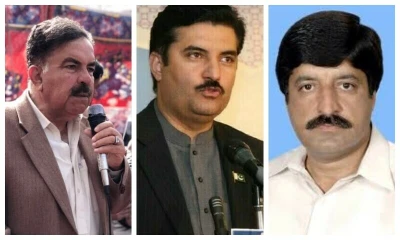
 Pakistan 1 day ago
Pakistan 1 day agoZardari approves appointments of Punjab, KP, Balochistan governors
-

 Pakistan 2 days ago
Pakistan 2 days agoPTI denied permission for rally in Karachi
-
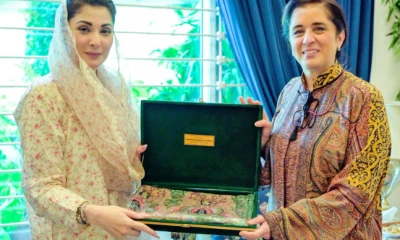
 Pakistan 2 days ago
Pakistan 2 days agoCM Maryam meets WHO Regional Director Dr Hanan Balkhy
-

 Business 2 hours ago
Business 2 hours agoGold prices soar by Rs2,500 per tola in Pakistan
-
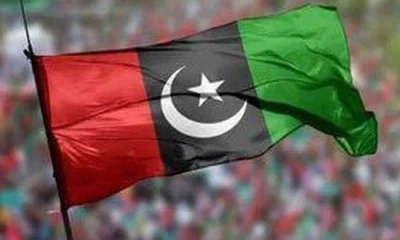
 Pakistan 2 days ago
Pakistan 2 days agoPPP nominates Kundi, Haider for KP, Punjab governorship
-

 Regional 2 days ago
Regional 2 days agoSindh govt introduces smart card for bus fares in Karachi
-

 Technology 2 days ago
Technology 2 days agoBinance founder’s sentencing hearing


